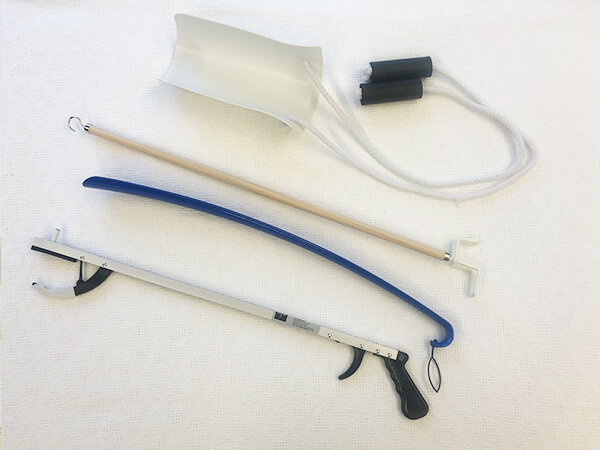09/08/2021
Planning for any surgical procedure comes with a variety of challenges. In orthopedic-related surgeries, one of the factors requiring attention will be the possibility of the need for post-operative equipment. As you prepare yourself for an orthopedic surgery, you may need to consider various types of equipment to help you be as safe and independent as possible with your daily activities.
In meeting with your doctor prior to surgery, discuss what limitations you can expect after surgery and whether or not you will need any assistive devices. Your doctor or physical therapist will know which device(s) may be most helpful following your specific procedure. If you are having a hip, knee, foot or ankle surgery you will likely need a walker, crutches or a cane. If you are having shoulder surgery, a cane could be helpful if you normally experience balance problems. An assistive device helps ensure you are safe and able to maintain potential weight-bearing restrictions placed on you after surgery to protect your ability to heal properly.
Prior to surgery, you may also consider what your household setup is like. Specialized equipment is available to make daily activities more comfortable. Bathrooms, in particular, can be more difficult to manage. Take into consideration the following: how low (or tall) your toilet seat is, whether or not you have anything next to the toilet to stabilize or push up from, whether or not you will be able to step into the shower or tub, and if you may need a shower chair or a tub bench. If you choose to purchase bathroom equipment prior to surgery, set it up and practice prior to your procedure to ensure safety and preparedness. Pretend like you can put little or no weight on the surgical part of your body in accordance with the expectations of your surgeon.
Getting dressed can also be a challenging activity in your recovery process. There are devices that can help a person be more independent with dressing, particularly when they don’t have a family member nearby to assist. A reacher, sock aide, long shoe horn, or a dressing stick can be helpful tools to get pants, socks, and shoes on and off following lower extremity surgeries. A button hook, zipper pull or dressing stick can be helpful following procedures to the hands or arms.
There are many options for obtaining medical equipment prior to surgery. Durable Medical Equipment (DME) suppliers, pharmacies, retail or hardware stores, as well as churches, lending programs, or Goodwill are all places that often have such devices. Some people opt to order equipment online for the convenience of having it delivered to their doorstep. Consider asking family and friends if they have equipment, as you may be able to borrow items for a fairly short amount of time. In certain situations, it may be beneficial to check with your insurance provider on what costs they may cover.
Surgery and subsequent recovery can be a daunting task and the staff at OrthoNebraska is here to help. Please do not hesitate to contact your physician or the therapy staff to guide you in your potential equipment needs as you near your surgery date.
Looking for a place that prepares you best for surgery? Look no further. Call (402) 609-3000 for an appointment.



